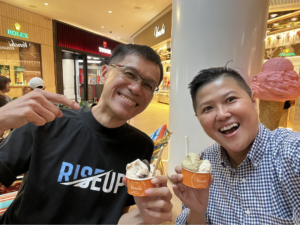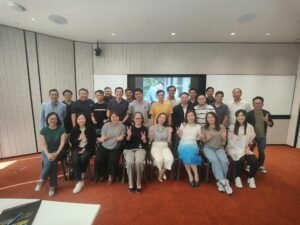
In today’s work settings, being able to influence without authority others is more important than just giving orders. This skill is crucial for anyone who wants to lead well, even a person without a formal title.
Influence without authority means making people listen and support you through your good ideas and how well you speak and connect with them. Whether you’re leading a team, working with different departments, or giving advice as an outsider, your success comes from how well you can talk to others and get them on your side.
Let’s look at how becoming better at this can make you a more effective manager and leader, able to handle complex situations at work and get things done without needing a formal title.
Understanding the Dynamics of Influence

Influence without authority hinges more on emotions than on logic. Recent neuroscience shows that emotions play a central role in decision-making, emphasizing that effective influencers engage their audience’s emotional brain.
To leverage this new initiative and influence without authority, prioritize active engagement:
- Listen and Ask: Uncover what motivates your audience by asking insightful questions.
- Establish Credibility: Demonstrate your expertise and reliability to gain trust and respect.
- Emotional Connection: Use empathy to connect on a personal level, enhancing receptiveness to your ideas to influence without authority.
By mastering these elements, you can sway opinions and inspire action, transforming your influence into a key tool for leadership, even without formal authority.
Key Strategies to Influence Without Authority

To influence people effectively without formal authority, focus on these concise strategies:
- Building Credibility: Demonstrate your authority leading expertise through actions that showcase your knowledge and reliability. People trust and follow those they consider competent and insightful.
- Creating Connections: Forge meaningful relationships within and outside your team. Understand colleagues’ challenges and offer support, turning interactions into opportunities to build relationships for mutual support.
- Effective Communication: Communicate with clarity and engage emotionally. Tailor messages to resonate with your audience’s needs and use storytelling to enhance impact.
- Empathy and Emotional Intelligence: Show genuine understanding and concern for others’ feelings. This builds trust and opens doors for your ideas to be heard and embraced.
- Reciprocity and Adding Value: Help others achieve their career goals. People are more likely to support those who’ve supported them, establishing a cycle of positive influence and collaboration.
These strategies can transform your approach to leadership, enhancing your ability to lead without direct authority while fostering long-term relationships and respect.
Challenges and How to Overcome Them

Influencing without authority isn’t without its challenges. Here’s a look at common obstacles and strategies to navigate them effectively:
- Resistance to Change: People often resist new ideas or changes, especially from someone without formal authority. Build credibility through consistent, positive results. Small wins can help demonstrate your capability and gradually change perceptions.
- Lack of Credibility: Without a title, people might question positional authority of your expertise or right to lead. Share your knowledge and contribute meaningfully to discussions. Continuously improve and display your skill set expertise in visible ways.
- Navigating Organizational Politics: Office politics can complicate efforts to influence others. Foster good relationships across the organization. Understand different stakeholders’ interests and align your organizational change and initiatives with those interests as much as possible.
- Gaining Visibility: It’s challenging to get noticed in a large organization, especially without a high-ranking title. Actively participate in meetings, volunteer for cross-functional projects, and communicate your achievements and the benefits they bring to the organization.
- Establishing Trust: People follow those they trust, and building trust without authority takes time. By addressing these challenges with targeted strategies, you can enhance your ability to influence and lead effectively, even when formal authority is lacking.
Developing Your Influence Skills

Enhancing your influence skills is an ongoing process that involves self-improvement and strategic interaction with key stakeholders. Here are key ways to develop and refine your ability to influence without authority:
- Continuous Learning: Keep updating your knowledge through courses and books to stay credible and informed.
- Practice Active Listening: Understand others’ needs and motivations better by listening attentively.
- Enhance Communication Skills: Improve clarity and persuasiveness in your communication through specialized training.
- Build Strong Relationships: Forge meaningful professional connections that go beyond superficial networking.
- Seek Feedback and Mentorship: Use feedback from mentors to refine your influence tactics and grow faster.
- Demonstrate Empathy and Integrity: Build trust by consistently showing genuine concern and acting ethically.
These streamlined approaches can significantly boost your ability to influence without authority.
Leveraging Digital Tools for Influence

Individuals can leverage platforms like LinkedIn to establish themselves as thought leaders, showcase expertise, and build credibility within their industry thereby enhancing their ability to influence without authority. To establish thought leadership and credibility on Social Media platforms , several key strategies can be employed
- Find Your Niche: Identify a specific area where you can offer unique insights that fill a gap in the market. This involves researching other thought leaders in your industry, understanding industry trends, customer pain points, and aligning with your company’s growth priorities.
- Refresh Your Profile: Enhance your LinkedIn profile to reflect your thought leadership. Include links to relevant content like eBooks, case studies, whitepapers, presentations, and engage with other thought leaders in your industry.
- Create Engaging Content: Develop content that is relevant, useful, and engaging for your audience. Utilize various formats such as blogs, podcasts, videos, infographics, and webinars to share your knowledge and opinions.
- Engage with Others: Actively engage with other thought leaders in your industry by commenting on their posts, collaborating on content, and participating in discussions. This interaction helps build visibility and connections.
- Collaborate with Peers: Collaborating with other thought leaders can expand your network, reach new audiences, and enhance credibility. This can involve joint content creation, webinars, live sessions, or featuring each other in blogs or videos.
- Use Social Media Platforms Wisely: Choose platforms that align with your goals and style. For example, LinkedIn is suitable for showcasing professional skills, while Twitter is ideal for sharing quick insights. Tailor your content to suit each platform’s strengths2.
- Be Authentic and Consistent: Maintain authenticity in your voice, style, and message across social media platforms. Share your stories, experiences, and challenges to create a unique brand identity and connect with your audience
Adapting Communication and Influence Strategies for Cultural Differences

Persuasion and influence strategies rooted in Western culture, often characterized by individualism and low power distance, may fail to have the anticipated effect in certain cultural contexts that do not share these characteristics.
Cross-cultural dimensions such as individualism vs. collectivism, high-context vs. low-context communication, and the concept of “honor” can significantly impact the effectiveness of communication and influence tactics.
For example, in collectivist cultures, the salience of in-group members and group identity is an important component of influence, and others’ opinions exert heightened influence. Collectivists also tend to be more compliant to authority and susceptible to influence and persuasion, as conformity is central to their cultural conditions.
In contrast, individualists are more influenced by personal attitudes and goals. Similarly, communication styles differ between low-context cultures that rely on explicit, detailed messages and high-context cultures that rely more on implicit, contextual cues5.
Influence tactics like rational persuasion may be problematic in honor-based cultures, as challenging questions can undermine source credibility.
Importance of Cultural Adaptation
Recognizing and adapting to these cultural differences is crucial for effective communication and influence, whether in business, investigative interviews, or other cross-cultural interactions. Influence strategies require culturally informed techniques, including flexible communication and training of personnel operating in cultures different from their own.
Failure to adapt communication and influence tactics to cultural context can lead to misunderstandings, ineffective persuasion, and damaged relationships. Developing an understanding and deep respect for cultural differences is key to cross-cultural success in today’s globalized world.
Conclusion
Mastering influence without authority transforms challenges into opportunities in modern, collaborative workplaces. By developing skills in persuasion, empathy, and strategic communication, you can lead effectively without needing a formal title. This capability not only enhances your professional growth but also positively impacts your team and organization. As you refine these interpersonal skills, you’ll become a pivotal leader, respected for your ability to guide and inspire others. Such influence extends beyond mere professional achievement; it fosters a culture of collaboration and mutual respect within any group. Embrace these principles to become a more versatile and impactful leader, regardless of your position.
Take the Next Steps with Rise Up Global
Boost your influence skills by exploring the specialized resources and workshops available at Rise Up Global. Engage with our community of professionals dedicated to leading without authority and enhance your ability to persuade and motivate. Take action today to transform your professional presence and become a pivotal leader in any team setting. Join us and rise to the challenge with Rise Up Global!







